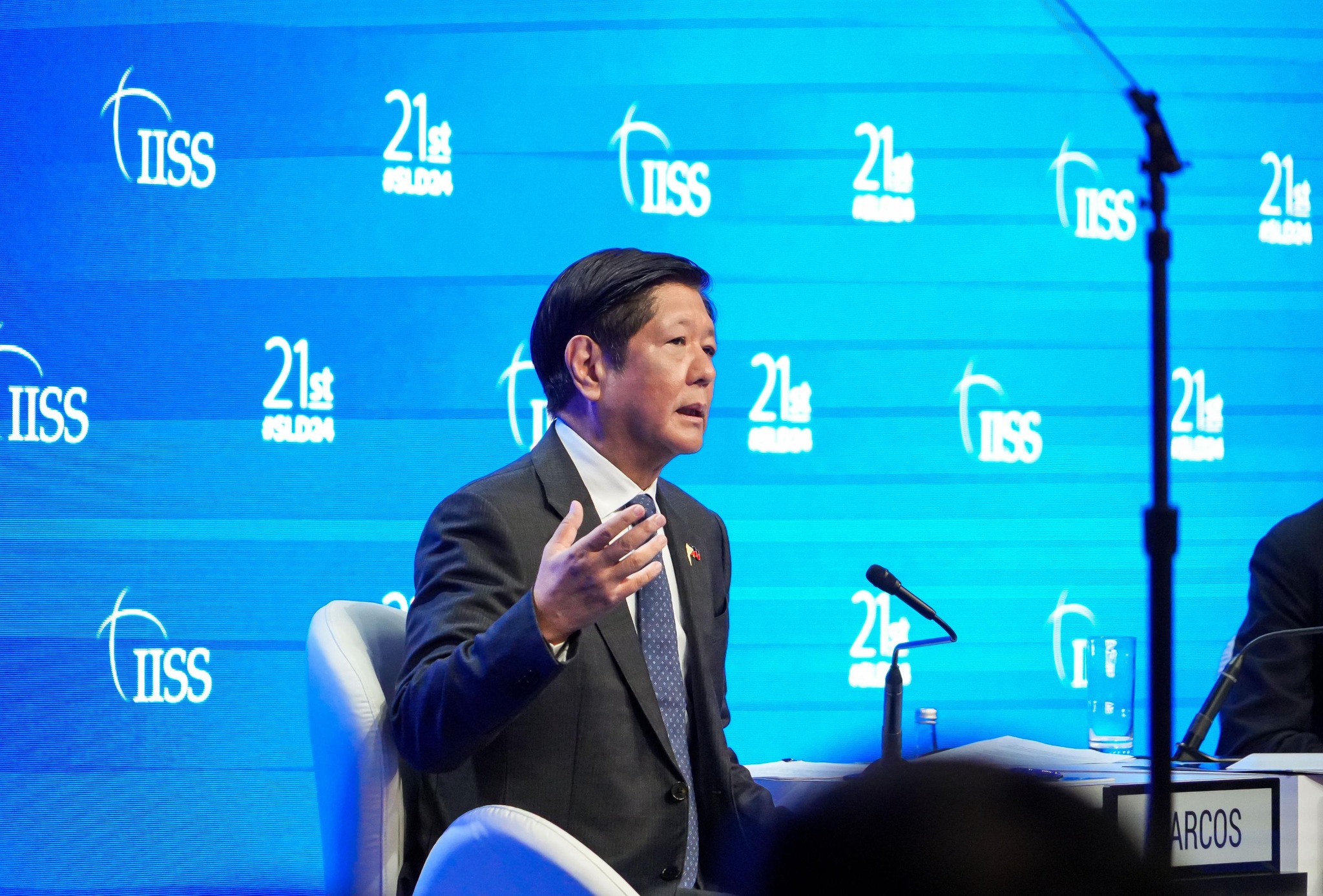News
PH committed to address WPS dispute through dialogue, diplomacy

President Ferdinand R. Marcos, Jr. on Friday vowed to embrace the Philippine’s role in the region and around the world ‘with a sense of purpose’ as he underscored the strong potentials of the country given its position in global standing. (PCO Photo)
MANILA – President Ferdinand R. Marcos Jr. on Friday said the Philippines is committed to address the maritime dispute in the West Philippine Sea (WPS) through dialogue and diplomacy.
In his keynote address at the opening of the 21st edition of the International Institute for Strategic Studies (IISS) Shangri-La Dialogue in Singapore, Marcos said the 1982 United Nations Convention on the Law of the Sea (UNCLOS), which clarifies the limits of each state’s maritime zone, and the 2016 Arbitral Award, which invalidated China’s sweeping claims over the resource-rich South China Sea, provide a “solid foundation” for the peaceful resolution and management of disputes.
Marcos said the country’s policy on the South China Sea is built upon these two touchstones amid China’s continued aggression in the disputed waters.
“Illegal, coercive, aggressive and deceptive actions continue to violate our sovereignty, sovereign rights, and jurisdictions. Attempts to apply domestic laws and regulations beyond one’s territory and jurisdiction violate international law, exacerbate tensions, and undermine regional peace and security,” Marcos said, as he referenced to China’s new policy to detain alleged “trespassers” in the South China Sea, including those overlapping in the WPS.
“But despite all this, the Philippines remains committed to the cause of peace upon which our constitutional order is premised. We are committed to addressing and managing difficult issues through dialogue and through diplomacy,” he added.
The President said the country will also continue to work with the Association of Southeast Asian Nations (ASEAN) and China toward an effective and substantive code of conduct that is anchored on UNCLOS.
“We will continue to build upon our significant footprint in enriching UNCLOS,” he said.
Aside from diplomacy and upholding the rule of law and international affairs, Marcos said the Philippines would also build its capabilities to protect its interest in its own maritime domain and in the global commons.
“Under our comprehensive archipelagic defense concept, we shall develop our capacities to project our forces where we must by constitutional duty and by legal right, protect our interest and preserve our patrimony,” he said.
He stressed that the country remains committed to ASEAN centrality, which serves as a core element of its foreign policy.
He said the Philippines will also pursue collaborative endeavors with various states in order to promote regional stability.
“We shall strengthen our alliance with the United States and our strategic partnerships with Australia, Japan, Vietnam, Brunei and all the member states of ASEAN. We shall also pursue more robust collaboration with friends such as the Republic of Korea, India, among others,” he said.
The President, meanwhile, reiterated that he will not surrender an inch of the country’s territory to foreign powers.
“The life-giving waters of the West Philippine Sea flow in the blood of every Filipino. We cannot allow anyone to detach it from the totality of the maritime domain that renders our nation whole,” he said.
“As President, I have sworn to this solemn commitment from the very first day that I took office. I do not intend to yield. Filipinos do not yield.”
Marcos was the first Philippine leader to deliver a keynote message for the IISS Shangri-La Dialogue, Asia’s premier defense forum.





















